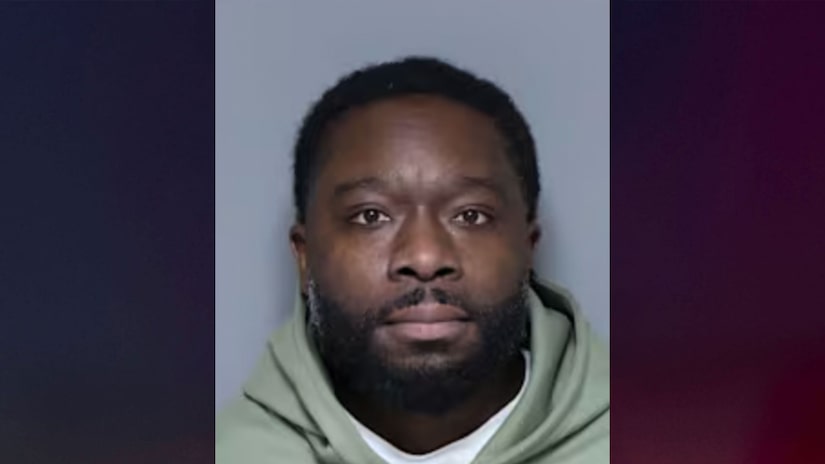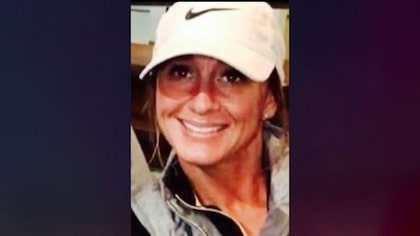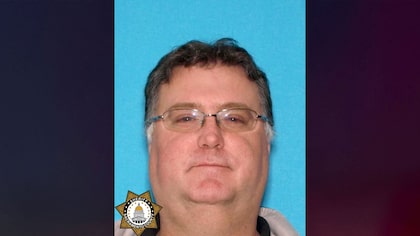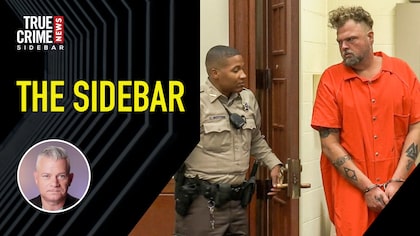Elizabeth Smart investigates official responses to campus sexual assaults
05/25/2016 5:26 am PDT
Purity. Virtue. Honor. At universities all across the country, ideals like these are part of an actual code of conduct that comes with very real consequences.
But could some of these so called "honor codes" actually be enabling the very worst kind of behavior?
For Hailey Allen, attending the Mormon-run Brigham Young University in Provo, Utah was something of a dream come true.
"'I thought, 'I'll be valued when I go to college. People will recognize me as having something to offer. I will be important or needed,' and that is something that I've desperately wanted my whole life, is to be needed, to have something to offer," said Hailey.
And then along came a handsome young student who seemed to fill those needs.
"He was interested in me," said Hailey. "I'd never had a boyfriend before, and so someone active in the church, this was who I wanted to date. This was the experience that I wanted to have, and I was over the moon."
But sometimes it really is darkest before the dawn, and Hailey's dawn was a very long way off.
"So every night he had kind of pushed my limits. He just kept going quicker and quicker," said Hailey. "He started kissing me, then immediately his hands went to my chest, and I pushed them away, and I'm pulling away, 'Hey, don't do that, let's not do that.' And he got out of the car and got in the back seat and told me to get in the back seat, and I said 'No, what are you doing?'"
That's when Hailey says she got her first glimpse of the horror to come.
"I said 'no,' and he said 'Get in the back seat or walk home,' so I said 'OK,'" said Hailey. "I got out and walked home. I was not going to get in the back seat."
After that?
"He just completely ignored me. OK. So several days go by and I just decided, 'OK, I guess we're done.'"
A blessing in disguise, but one that wouldn't last. After roughly a week of silence...
"He says 'Hey, let's go for a drive and talk,'" said Hailey.
"I'm expecting an apology for how he's been acting," said Hailey. "So the entire time I'm waiting for an apology. The whole time he was just asking me stupid questions."
Then the conversation suddenly shifted to the big plastic tumbler in the cup holder.
"He said 'Oh, I brought you a drink.' 'I'm not thirsty.' And so he ended up stopping to say 'Really? Could you please really just try it, I made it special for you, can you please just try it?' And I was like 'OK, OK,' and then he started driving again," said Hailey.
But as the he hit the gas, Hailey's world began to slow way down. Her speech began to slur.
"All of a sudden his demeanor completely changed, he flipped a 'U' in the middle of the road and started heading back to the apartment," said Hailey.
Hailey says one of the next things she remembers was being in the back seat of his car.
"I come to, my pants are off, his pants are pulled down and he's rubbing himself against me," said Hailey. "How did this happen? I would have stopped this several steps ago.
"And the only thing that I could think of to say was 'Don't go in me,' and then everything went black," said Hailey.
"I hear him laughing and he says 'Your first time and you're not even going to remember it,'" said Hailey.
At that time you knew that you were being raped?
"I didn't have the term at that time because I grew up assuming rape was from a stranger, rape happened when you walked alone in alleys," said Hailey. "I didn't know it was rape."
A dangerous yet all too common misconception.
"The majority of rapes are acquaintance rapes," said Kortney Hughes, Victim Services Program Coordinator for the Provo Police Department. "We're talking about boyfriends, girlfriends, family, friends. That is going to be the majority of rapes and sexual assaults."
But it would still be some time before Hailey Allen came to that realization, and even though she knew what happened was wrong, she went back to the man, if only to get some sort of explanation. Instead, over the next three weeks, Hailey says she was subjected to regular rape and abuse from the person she actually considered to be her first boyfriend.
"He took great pleasure in making me feel worthless," said Hailey.
As Crime Watch Daily dug deeper, we found Hailey's case wasn't even close to an isolated incident.
Like Hailey, Colleen Dietz came to BYU full of excitement. Then, shortly after enrolling, Colleen ran into an old acquaintance from back home.
"I met him a few years prior because he was from Arizona, so it was a fun like 'Hey, we know each other.' We spent a lot of time together," said Colleen.
Colleen admits she had a bit of a crush on the boy. But those feelings would go unexplored.
"He had an uncle who lived locally who would come around, and his uncle was 27 at the time. He was a professional, he dressed nice, he was taller," said Colleen. "He was very impressive. But I wasn't attracted to him.
"Through our getting to know each other, if you will, he found out that I really loved music, it's a huge passion of mine," said Colleen.
That's when the man offered to take Colleen back to his place so she could check out his collection and burn some CDs. Once the two got to his house, Colleen remembers listening to a few tunes, and then, confusion.
"My memory, it does a little shaky after this point," said Colleen. "Somehow he took my clothes away from me. I was in his room. I had never been naked with a man before. He was pulling me down off the bed on top of his penis. At that point I was like 'Please stop, please stop. I don't want to have sex, I don't want to do this,' and he just didn't care."
Making the experience all the more horrific, Colleen says the entire time he was committing his evil acts, her attacker was dressed as a man of God.
"He had his LDS temple garments on, which was really difficult for me," said Colleen.
Colleen says that for the next two days, the man kept her locked in his room without her clothes -- a virtual slave. After that, he made her shower before taking her back home to suffer in silence.
"I felt shame, I felt guilt, I felt worthlessness, I felt dirty," said Colleen.
Eventually, both Colleen and Hailey would gather up the courage to speak out. But instead of finding the support they needed, they were about to start a process nearly as bad as what came before -- one that would call their very honor into question.
They came to college not just to further their education, but to find a sense of belonging -- to find themselves.
Unfortunately evil intentions found them first.
Both girls would muster the courage to report what happened. Not to police, but to the school, and that's when, they say, what should have been the beginning of the healing process only aggravated their wounds.
"I went to the BYU Honor Code Office. I went to them knowing that it was wrong, and I went to them hoping that they would understand," said Hailey.
But Hailey says BYU's honor code, which strictly prohibits any sort of "sexual misconduct," only allowed the school to turn the blame on her.
It was much the same for Colleen, though instead of going to the Honor Code Office, she went even higher, to her bishop.
Both Colleen and Hailey would fight back, and after lengthy, they say humiliating, review processes, the girls were found innocent of any honor code violations.
But they say the whole experience made them reluctant to talk to anyone else, and their alleged attackers were never brought to justice.
"Predators actually take advantage of situations like honor codes at different universities or institutions," said Provo Police Chief John King. "And so I think what we've learned from this case, I know I've learned that that is a true obstacle to victims reporting."
In a bold move, even the Provo Police Department has recently come out in favor of revising honor codes like the one at BYU.
"I think that what institutions that have honor codes or restrictions like that have to look at is, Is it creating an obstacle that a victim who has been traumatized has to jump over an extra hurdle before they seek help?" said Chief King.
But hopefully, that system is changing thanks in part to recent publicity.
Like both Hailey and Colleen, 20-year-old BYU student Madi Barney says she was raped while attending the university. In Madi's case, her alleged attacker was arrested, but word still got back to the school's honor code office.
"She had a criminal prosecution going forward against her alleged rapist. At the same time, the school told her she had to come in and cooperate with the honor code investigation, when on following her attorney's advice, she said 'I have to wait until the trial is over.' The school said 'We're not waiting, you can no longer attend BYU until you come in and cooperate with our investigation,'" said former prosecutor Loni Coombs.
We reached out to BYU for comment, and though they declined to appear on camera, they did have this to say: "Our goal in every situation is to give students the support that they need. The victim of a sexual assault will never be referred to the honor code office for being a victim of sexual assault. In addition, the university has recently announced the appointment of a four-person committee to look at potential structural changes in the way assaults are reported at the school."
Though it's important to remember, this is not just a BYU problem, and what many students don't realize, is that there is actually a federal mandate which should prevent the kind of road blocks some of these honor codes put up.
It's called Title IX, and it's supposed to stop institutions that receive federal funding from any sort of sex discrimination.
"There also needs to be a lot of education about Title IX rights," said Loni Coombs. "Students need to understand what they can do under Title IX as far as report these incidents and get counseling and get resources to help them."
Though the statute of limitations at the time now prevents prosecutors from going after Hailey and colleen's alleged attackers, both girls hope that by speaking out now, they can help others in their situation.
"This has really brought to light a problem, but even more so, it's brought these survivors together. They're finding so much support in each other," said Kortney Hughes, Victim Services Program Coordinator, Provo Police Department. "We're incredibly proud of them, seeing them stand up and actually tell their story."






